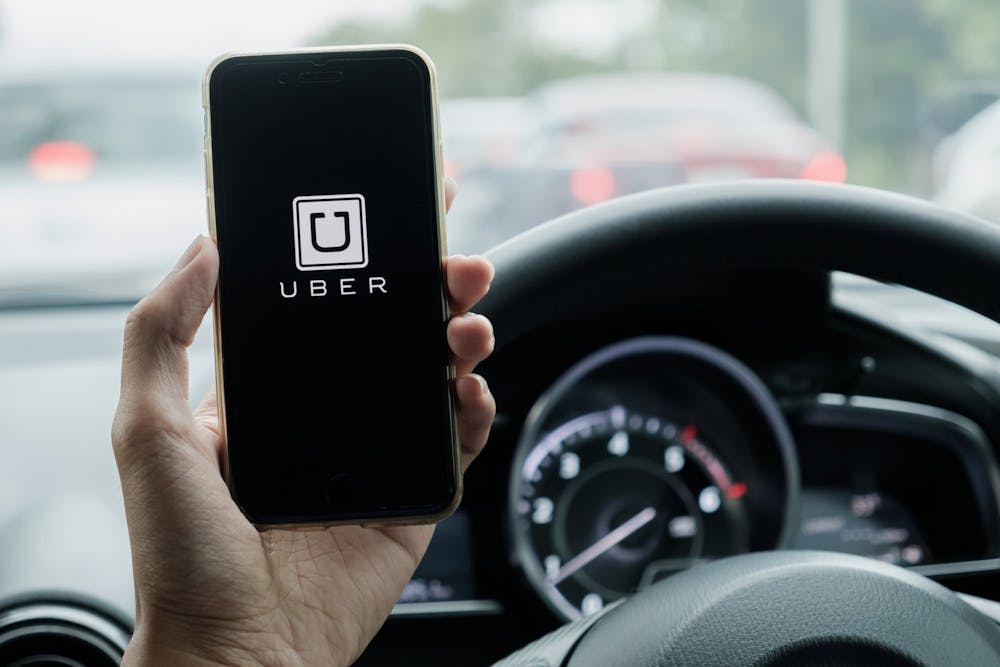Our jobs are a lot less stable than they used to be. Companies have fewer full-time jobs. People now have to work multiple part-time positions or take on extra freelance style gigs just to get by. Plus, the temporal nature of this new conception of work leaves laborers missing out on overtime pay, health insurance, paid time off and the ability to unionize.
This is the gig economy. Companies — and federal and local governments — are tending to hire contractors and freelancers to do work only when they need it. This reduces their bottom line and necessarily muddies the definition of what it means to have a career.
While advocates of the gig economy believe it gifts the privilege to work more flexibly, it’s not all peaches and cream for those looking to support themselves and their families in an increasingly precarious economy.
Over the past decade, the hype surrounding freelance gigs has centered on app-based technology companies like Uber that portray working for them as a paid pastime. Work a few hours here and there, and boost that income.
Driving for Uber and Lyft is not a gig for most people though. It is their only source of income. Close to 60% of food delivery drivers at Doordash, Postmates, Grubhub and more could not handle a $400 emergency expense. Yet these dedicated app-based workers are barred from receiving the security and benefits of full employment.
In the last two years, there has been a greater push to change the status of these workers, to classify them as employees instead of independent contractors.
The United Kingdom forced Uber to recognize its workforce as employees and provide a minimum wage and health care benefits in July.
In California, Assembly Bill 5 was signed into law September 2019. The bill created a three-pronged test for companies to figure out proper classification for their labor force. The test’s questions press on the level of freedom the contractor has, whether the worker is performing outside the company’s usual course of business and whether the worker is engaged in an established occupation the same as the work performed.
The bill made it blatantly clear that the app-based driver positions for companies such as Uber, Lyft, Postmates, Doordash and Grubhub are not independently contracted. The apps direct where to go, how to go and what to do when there. The work these drivers do is the business model. They are not performing outside the company’s course of business.
About a year after Assembly Bill 5 was signed, on Aug. 10, 2020, the Superior Court of San Francisco ruled that Uber and Lyft were violating the law and were indeed misclassifying workers.
The companies threw a temper tantrum and threatened to suspend their services unless the ruling was overturned. In late October, California’s First District Court of Appeals granted the companies 30 days before they had to comply with the ruling — that is unless Proposition 22 passed on Nov. 3.
Proposition 22 is a ballot measure that defines ride-share and delivery drivers as independent contractors instead of as employees. It is a direct rebuke to Assembly Bill 5. Thus, it permits the adoption of labor and wage policies specific to the app-based drivers, free from comprehensive protections normally given to workers classified as employees.
Proposition 22 turned out to be the most expensive ballot initiative in the Golden State’s history. Uber, Doordash and Lyft, with the help of a couple of the other smaller platforms, contributed more than $200 million to keep exploiting their workforce.
Additionally, Uber threatened drivers with layoffs via in-app notifications. If they voted no on Proposition 22, Uber would have to cut 70% of its workforce. They also sent riders similarly intimidating messages that warned the cost of rides could increase anywhere from 20% to 100%.
Big Tech money and a misguided politics of fear propelled the ballot initiative to pass with 58% of the vote, leaving the future of the gig economy unstable, uncertain and unequipped to provide and protect the people who make it function.
Now more than ever, with the devastating pandemic, subsequent tumultuous recession and the Trump administration’s inadequate response, it is imperative the fight to reclassify hard working app-based drivers as employees carries on despite the defeat in California.
All workers need to be cared for, treated with respect and provided sufficient compensation and protections for their labor.
JP Brenner (he/him) is a senior studying political science and geography. He loves spending time outdoors, away from his phone and is an avid reader.






